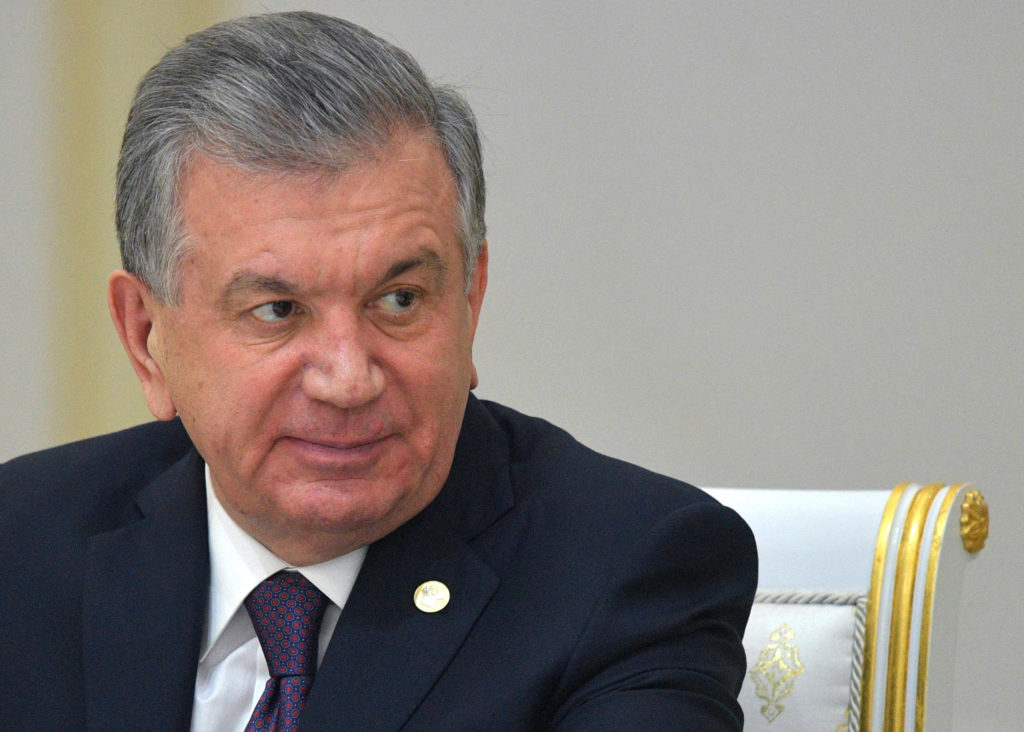TASHKENT
Uzbekistan is taking steps to develop its capital market and increase the total volume of securities in free circulation to at least 5 percent of the country’s gross domestic product (GDP), as a part of its plan to reform its economy.
The Central Asian country is making efforts to improve its investment climate after more than two decades of economic isolation. The closed, autarkic system viewed most foreign investments as a threat. That ended when Islam Karimov, who had led Uzbekistan since before the Soviet breakup, died in 2016.
Now-President Shavkat Mirziyoyev, who was once a prime minister under Karimov, has made attracting foreign investors one of his top priorities in an increasingly ambitious plan to open Uzbekistan to the outside world.
Mirziyoyev issued a decree ordering dissolution of the Capital Market Development Agency and transferring its functions to the finance ministry.
The decree sets its main priorities as the regulation and development of the capital market. It instructs the government to ensure “increased accessibility of the capital market for all categories of investors through active integration with international financial markets … and the use of advanced approaches successfully tested abroad.”
Domestic bond issuers in Uzbekistan will be able to place their shares in the foreign stock markets starting from January 2023, the document said, adding that they must first place their shares domestically and get the recommendation of the underwriter to do so.
Uzbekistan’s finance ministry, now in charge of the development of the securities market, has pledged its commitment to develop the domestic capital market, and said it was “undertaking measures to develop this market in collaboration with the International Monetary Fund, the World Bank, the Asian Development Bank, and the US Treasury.”
The ministry plans to undertake all necessary measures to bring domestic capital market regulations in line with international standards and an approved roadmap.
The roadmap shows that Uzbekistan finally plans to issue Sukuk bonds, an Islamic financial tool, in April 2022.
A Sukuk is an Islamic financial certificate, similar to a bond in Western finance, that complies with Islamic religious law commonly known as Sharia. Since the traditional Western interest-paying bond structure is not permissible, the issuer of a Sukuk essentially sells an investor group a certificate and then uses the proceeds to purchase an asset that the investor group has a direct partial ownership interest in. The issuer must also make a contractual promise to buy back the bond at a future date at par value.
Uzbekistan signed a statement of intent with the Islamic Development Bank (IDB) and the U.N. Development Programme (UNDP) on the introduction of Islamic finance as an alternative financial model “to achieve sustainable development goals.”
Under this agreement, the IDB and UNDP supported the country’s initiative for the implementation of Sukuk, including its green component, by allocating grants in the amount of $220,000 and $100,000, respectively, which will be used to prepare the regulatory and legal bases for the issuance and circulation of varieties of Sukuk bonds in Uzbekistan.
Uzbekistan issued its debut sovereign Eurobonds worth $1 billion in 2019 and equivalent to $750 million in both local and foreign currency in 2020.
Three banks in Uzbekistan – the state-owned Sanoatqurilishbank, NBU and privately owned Ipoteka-Bank placed their inaugural Eurobond offerings in the international financial markets.

